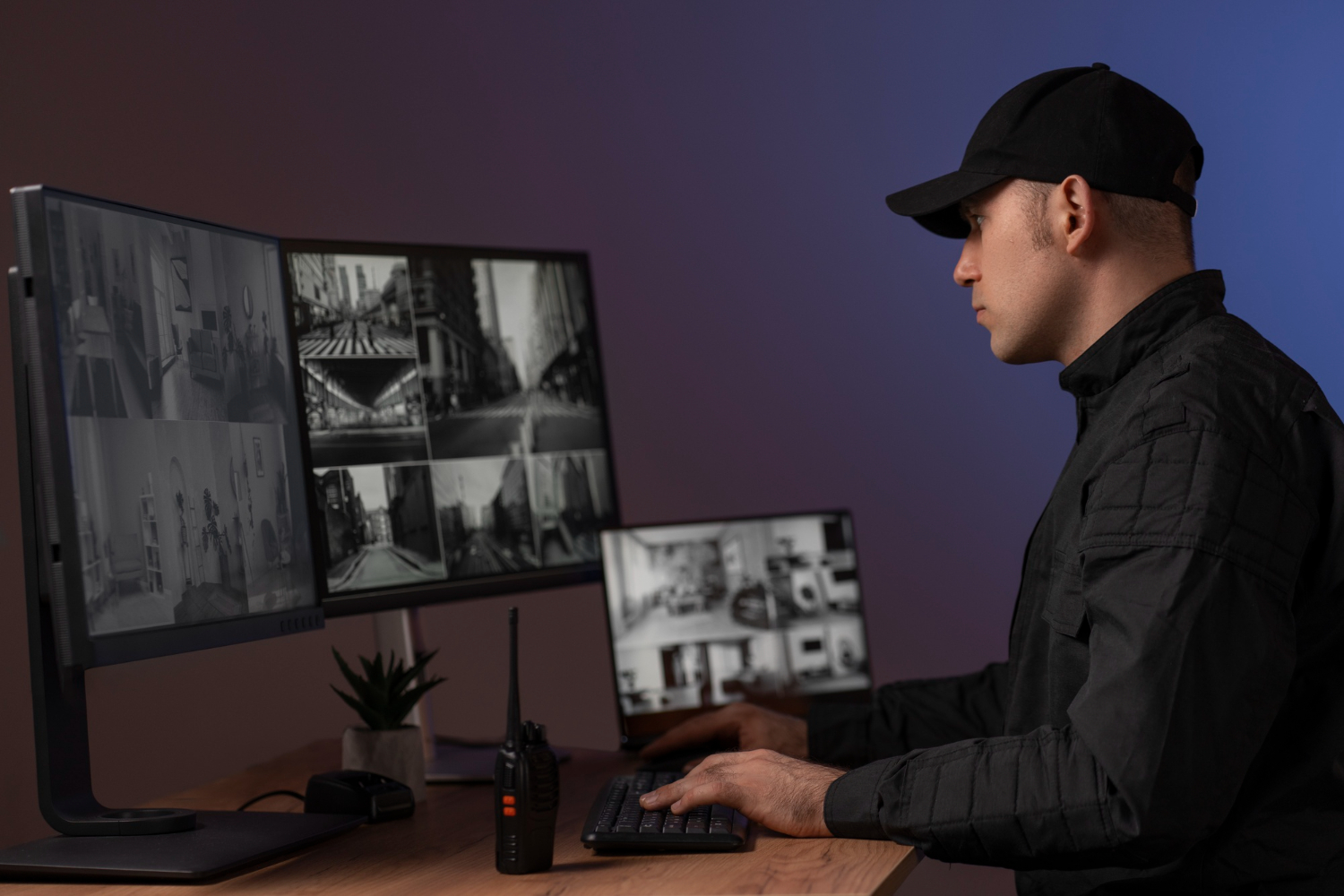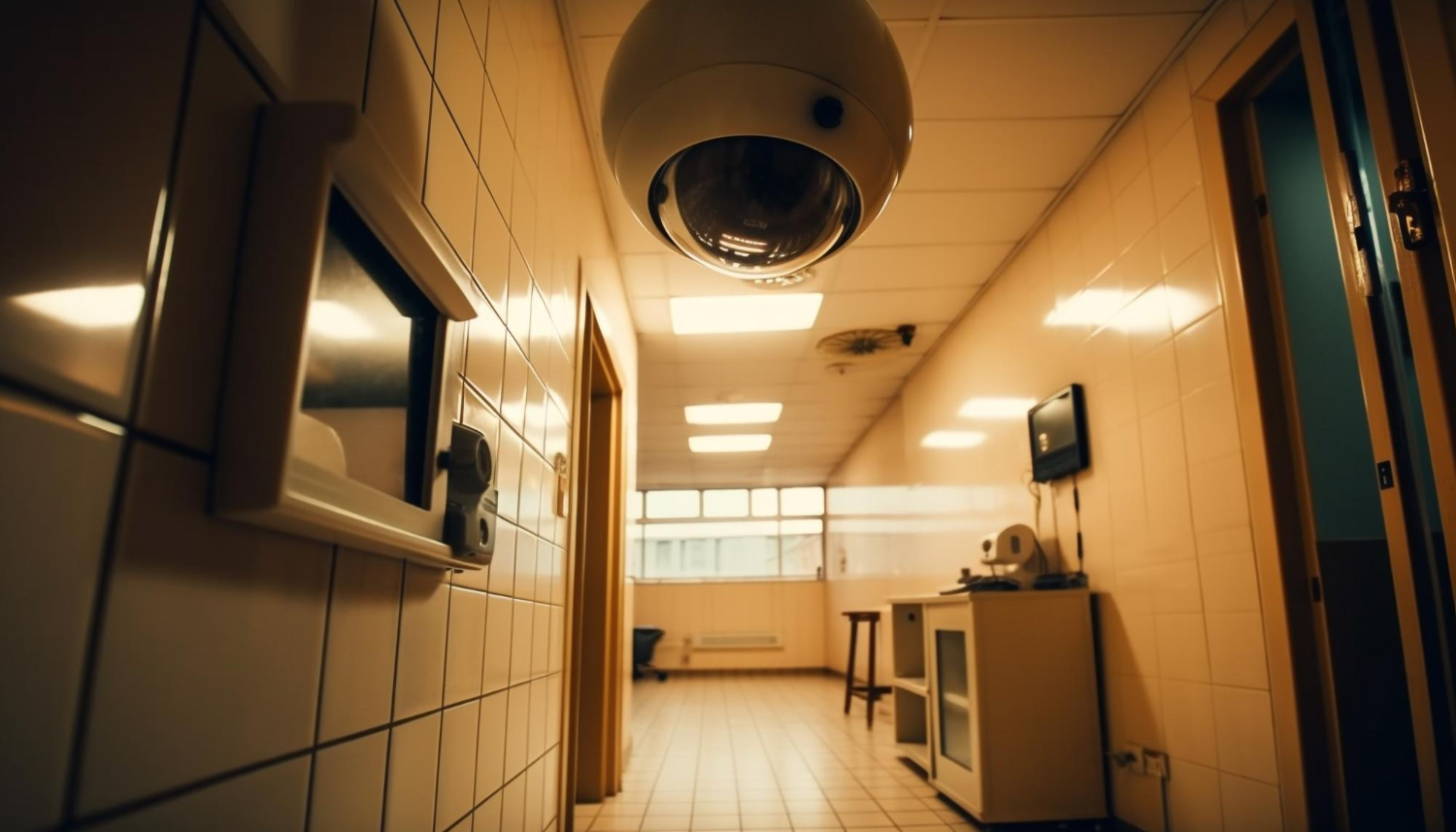The hospitality industry thrives on trust and safety; a single security mishap can tarnish a hotel’s reputation irreparably. In today’s digital age, where a guest’s concern over safety is as paramount as their demand for comfort, traditional security measures no longer suffice. The integration of advanced security camera systems stands as a pivotal upgrade to ensure the safety of guests and staff alike. This guide delves into the essence of selecting the right security cameras, aiming to fortify hotel premises against potential threats while upholding the serene and welcoming ambiance essential to the hospitality experience.
Understanding Security Camera Systems for Hotels
Security camera systems for hotels are not merely about installing hardware; they embody a comprehensive approach to surveillance, safety, and peace of mind for both guests and hotel operators. A robust system comprises various components including cameras, storage solutions, monitoring equipment, and integrated software that collectively work to detect, record, and analyse movements and activities within and around the hotel premises.
The choice of a security camera system should align with a hotel’s specific security needs, factoring in the size of the property, the layout of different areas, and the unique security challenges each location presents. Digital IP camera systems, for example, offer high-definition video quality and the flexibility of remote monitoring, making them a popular choice among modern hotels. The integration capability of these systems with other security measures, such as access control and alarm systems, further enhances a hotel’s ability to monitor and respond to security incidents efficiently.
Types of Cameras for Hotel Surveillance
The selection of the right type of cameras is crucial for an effective hotel surveillance system. Each camera type serves distinct purposes and is suited to different areas of the hotel:
Fixed Cameras:
These are ideal for locations where constant surveillance of a specific area is needed, such as entrances, lobbies, or reception desks. Their static nature means they always capture footage of a predetermined area, providing a reliable oversight of key locations.
PTZ (Pan-Tilt-Zoom) Cameras:
Offering the flexibility to pan across a wide area, tilt to adjust the camera angle, and zoom in for detailed views, PTZ cameras are perfect for monitoring large, open spaces such as hotel courtyards, parking lots, and dining areas. Their versatility allows security personnel to actively monitor and investigate suspicious activities in real-time.
Dome Cameras:
With their discreet dome-shaped enclosures, these cameras blend seamlessly into hotel interiors, making them suitable for areas where aesthetics are important. Their encasing also protects against vandalism, while the camera itself can offer wide-angle surveillance, ideal for hallways, bars, and waiting areas.
Hidden Cameras:
Used sparingly and ethically, hidden cameras can safeguard sensitive areas without intruding on guest privacy. However, their use must be carefully considered and comply with legal and ethical standards to avoid infringing on individual privacy rights.
Each camera type brings unique benefits to a hotel’s security setup. The choice should be informed by the specific surveillance needs of each area, balancing the need for security with the imperative of maintaining a welcoming environment for guests.
Key Features of Hotel Video Surveillance Systems
When selecting hotel video surveillance systems, several key features stand out as essential for effective security operations. High-resolution video capture is fundamental; it ensures that all footage is clear and usable, particularly in identifying individuals or details in security investigations. Equally important is the field of view offered by the cameras, with wider angles providing comprehensive coverage of large areas, reducing the number of cameras needed for full surveillance.
Low-light performance is critical for continuous monitoring, especially in areas that may not be well-lit at all times, such as parking lots and exterior walkways. Cameras equipped with infrared (IR) night vision capabilities can capture high-quality video regardless of lighting conditions. Motion detection technology streamlines surveillance by alerting security personnel to activity within designated areas, allowing for immediate review and response to potential security incidents.
Advanced features like facial recognition and licence plate identification enhance the surveillance capabilities of a hotel security system, enabling quick identification and verification of individuals within the hotel premises. Integration with other security systems, such as access control and alarm systems, creates a cohesive security infrastructure that can respond dynamically to various scenarios.
Legal Considerations for Hotel Surveillance Cameras

The deployment of hotel surveillance cameras must navigate a complex legal landscape, primarily centred around privacy concerns and data protection laws. Hotels must ensure their surveillance practices comply with local and national regulations, which often dictate where cameras can be placed, how footage is stored, and who can access it. Common areas like lobbies, hallways, and restaurants are generally acceptable locations for cameras, while private areas such as guest rooms and bathrooms are off-limits to prevent invasions of privacy.
Transparency with guests is paramount. Hotels should clearly communicate their use of surveillance cameras through signage and in their terms of service. This openness not only aligns with legal requirements but also builds trust with guests by reassuring them that the primary purpose of the cameras is to enhance their safety.
Data protection laws further stipulate how surveillance footage must be handled, with strict guidelines on storage duration, access controls, and the protection of recorded data from unauthorised access. Ensuring compliance with these regulations protects the hotel from potential legal challenges and upholds the privacy and security of guests and staff.
Implementing Hotel Security Systems
Effectively implementing hotel security systems, including surveillance cameras, requires a strategic approach that balances comprehensive coverage with discrete placement. Initial steps involve conducting a thorough security audit of the hotel property to identify vulnerable areas and determine the optimal locations for camera installation. This audit should consider the unique layout of the hotel, guest traffic patterns, and any specific security concerns that have been identified.
Professional installation by experienced security technicians ensures that cameras are correctly placed and configured for maximum effectiveness. Technicians can also advise on the best types of cameras for each location, considering factors such as environmental conditions and the need for discretion.
Ongoing training for hotel staff on the operation of the surveillance system and protocols for responding to security incidents is crucial. Staff should be knowledgeable about the capabilities and limitations of the security system, ensuring they can effectively leverage the technology in their day-to-day operations to enhance guest safety.
Security Camera Rental Property Considerations
For hoteliers who manage rental properties or offer short-term rental accommodations within their establishments, the integration of security cameras necessitates a nuanced approach. Ensuring tenant privacy while maintaining a secure environment is a delicate balance. Cameras should be strategically placed in common areas and entry points, avoiding private spaces such as bedrooms and bathrooms to respect tenant privacy. Clearly communicating the presence of these cameras and their locations in rental agreements and signage helps in managing expectations and reinforcing the purpose of these measures as being for security and safety.
Furthermore, the specific security needs of rental properties, which might see a higher turnover of occupants, require adaptable and remotely accessible surveillance systems. This allows for real-time monitoring and the flexibility to adjust security protocols as needed, depending on the rental occupancy and specific guest requirements.
Maintaining and Upgrading Hotel Security Cameras
The efficacy of hotel surveillance systems hinges on their proper maintenance and timely upgrades. Regular maintenance checks ensure that all components of the security camera system are functioning optimally, including camera lenses, storage devices, and software. This involves cleaning camera lenses to maintain clear image quality, checking power supplies and connections, and updating software to protect against cybersecurity threats.
Upgrading security camera systems is equally important, as advancements in technology can offer improved features such as higher resolution, better low-light performance, and more sophisticated motion detection algorithms. Staying abreast of these technological developments and incorporating them into the hotel’s security strategy ensures that the property is protected with the most effective tools available.
Threats of Hotel Industry
The threats facing the hotel industry are multifaceted, ranging from physical security concerns such as unauthorised access and theft to cyber threats targeting hotel booking and payment systems. The integration of comprehensive security camera systems plays a crucial role in mitigating these threats, providing not only a deterrent but also a means of response and investigation should incidents occur. However, the reliance on digital surveillance systems also underscores the importance of cybersecurity measures to protect surveillance footage and ensure the privacy and security of guest data.
Vigilance in monitoring potential security threats, coupled with a proactive approach to security management, enables hoteliers to adapt to emerging challenges and safeguard their properties and guests effectively.
Conclusion
Elevating hotel safety through the strategic selection, implementation, and maintenance of security cameras is more than an operational necessity; it’s a commitment to guest safety and peace of mind. As the hospitality industry navigates evolving security challenges, the role of advanced surveillance systems becomes increasingly central to maintaining the trust and confidence of guests. Hoteliers are encouraged to take a comprehensive approach to security, one that incorporates the latest technological advancements while respecting privacy and legal requirements.
Act now to assess your hotel’s security needs, explore the latest in surveillance technology, and commit to a culture of continuous improvement in your security practices. Together, we can ensure that hotels remain havens of safety and relaxation, where guests can enjoy their stay with the utmost confidence in their security.
